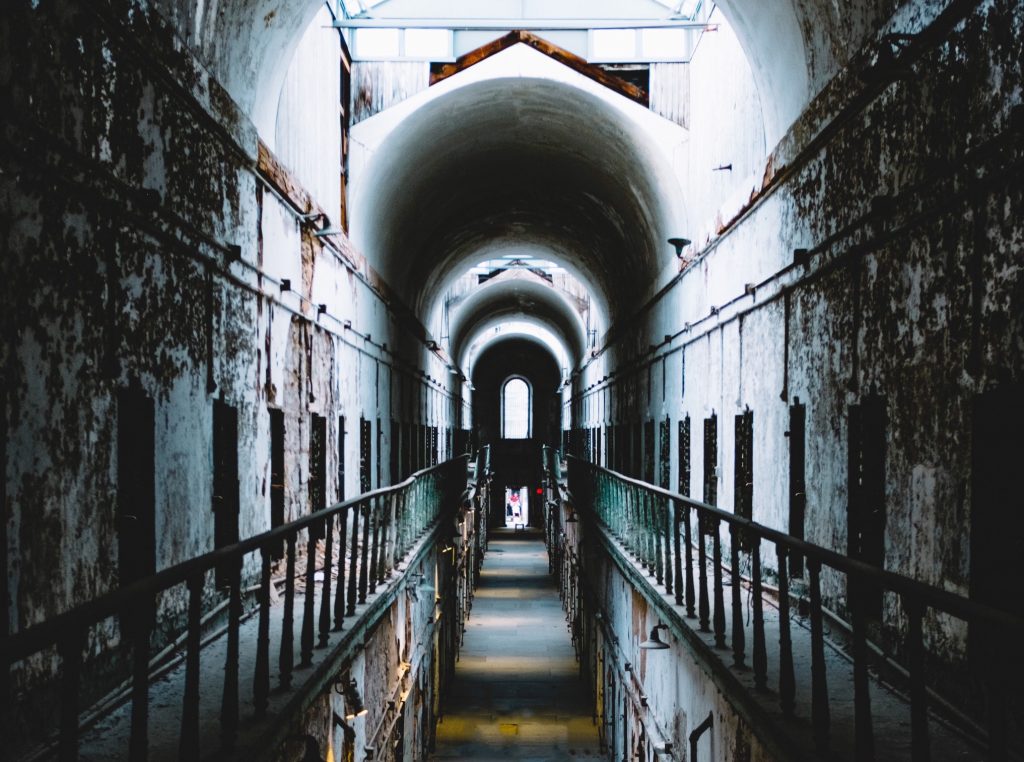Justice Secretary Liz Truss has unveiled a swathe of new prison and court reforms, hailing them as “biggest overhaul of prisons in a generation” and paving the way for a “world-class court system”.
They include a commitment to making prisons a place for reform, and plans to make justice through the courts swifter. But what do these reforms actually mean and, more importantly, what do people think of them?
What does the bill actually mean?
A new law means prisons will have to show they are rehabilitating inmates, I went to HMP Onley to see how it works https://t.co/SvP7LB6rqQ
— Tamara Cohen (@tamcohen) February 23, 2017
The new Prisons and Courts Bill follows on from a white paper – essentially a Government report setting out suggestions for future laws – released back in November. The bill, which will be debated in Parliament, includes the following new proposals:
- It sets down in law for the first time prison’s role as a place for reforming convicts
- Prisons will have a duty to cut reoffending – and the Government will publish league tables on how well they’re getting people off drugs, into jobs and learning English and maths
- Prison governors will also take control of budgets for education, employment and health
- People charged will less serious criminal offences – such as not having a valid train ticket – will be able to plead guilty online, be issued with a penalty and pay it there and then
- It gives courts the power to stop domestic violence victims being quizzed by their attackers in court
- Courts will use virtual hearings more, so victims don’t have to come face-to-face with the person who wronged them
- More hearings will be dealt with by a video or telephone conference call to make things quicker
So, what are people saying?
Speaking about why she was introducing the changes, the Justice Secretary explained:
Prison is about punishing people who have committed heinous crimes, but it should be a place where offenders are given the opportunity to turn their lives around. I want our prisons to be places of discipline, hard work and self-improvement. Our courts should be places where victims get the justice they deserve, and where our outstanding independent judiciary can flourish and focus on the cases that matter.
Bob Neill MP, chair of the Justice Committee, added that he saw the bill as a “valuable step forward” and it has also been warmly received by domestic violence charities.
Women need legal representation in all courts – they should not face their ex partners in court. Prison & Courts Bill is v welcome @bbc5live
— Refuge (@RefugeCharity) February 23, 2017
Women’s Aid Chief Executive Polly Neate hailed the move as a “breakthrough” for women and children. She added:
This is a breakthrough for the safety of children and their mothers who have been placed in the unthinkable position of facing their abuser in court. It is critical this legislation is followed by clear and firm guidance for judges, and we look forward to working with government and the President of the Family Division on this.
Peter Dawson, Director of the Prison Reform Trust, also welcomed the move but stressed the need to ensure “ambition can actually be realised” and urged a strong commitment to reducing overcrowding.

Does everyone agree?
As ever though, not everyone is on the same page. Frances Cook, CEO of the Howard League Campaign for Penal Reform disagreed with the Government’s branding of the bill as the “biggest overhaul of prisons in a generation”.
A cursory glance at Prisons & Courts bill, nothing particularly revolutionary. Will have to suggest stuff! https://t.co/b0QHqby2cG
— Frances Crook (@francescrook) February 23, 2017
The Prison Governor Association also threw doubt on the plans, warning of the demoralising effect of league tables on staff.
Governors are being asked to sign up to agreements, which will become effective in just five weeks, with insufficient detail on what they will be held to account for. The risk is that the prison reform bill will become the prison blame bill – a mechanism by which Governors are criticised or removed from post for matters beyond their control.
The Secret Barrister, an anonymous legal blogger, also raised questions about how to enforce the law.
Genuine question – how the blazes is this enforceable? The sentiment is plainly right, but what on earth does “setting it in law” achieve? pic.twitter.com/l5wyolPHuc
— The Secret Barrister (@BarristerSecret) February 23, 2017
So, what next?
Now the bill has been formally announced it will be scheduled for debate in the House of Commons, where MPs from all parties will get a chance to have their say.
Whatever your view on the bill, it’s set to have a big impact on the treatment of prisoners in the UK.
Want to read more about this?
- You can read the full text of the bill on the Government website
- Check out our explainer on exactly what human rights prisoners have
- Take a look at our infographic on the right to a fair trial







